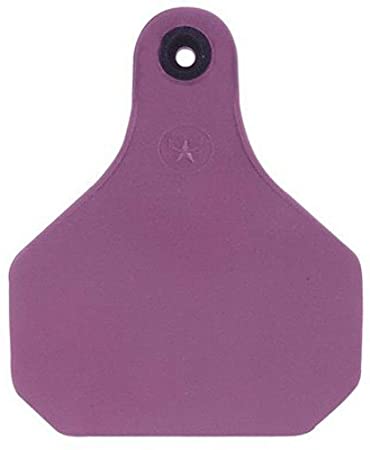
Tick tags, put in the mane and tail or attach it to the cover straps, comes as a pair.
Active Ingredients: Piperonyl Butoxide @ 200g/kg & Zeta-Cypermethrin @ 100g/kg
Contains a new synergised S-isomer pyrethroid. This product, because of the piperonyl butoxide component, provides a sustained release of the selected active form of zeta-cypermethrin (cypermethrin S-enantiomers). This insecticide is spread into the oils of the coat by the grooming of the animal and kills the ticks by contact. Controls ticks for up to 16 weeks on the head and neck of deer, including velvet antler on stags. Aids in the control of ticks on fawns aged up six weeks when these are run with Python Ear Tag treated hinds. Aids in the control of ticks on the body of deer and cattle for at least 6 weeks.
Indication:
Control of New Zealand cattle tick on deer, cattle (including beef and lactating dairy cows) & horses.
DOSAGE:
Calves aged less than 6 months and fawns aged less than 9 months: 1 tag in 1 ear only.
Cattle older than 6 months and deer older than 9 months: 2 tags, 1 in each ear.
Special Precautions:
May be harmful if swallowed, or absorbed through the skin. May cause mild skin and eye irritation. Avoid skin or eye contact and avoid breathing vapour. Repeated exposure to cypermethrin may cause skin allergy. Cypermethrin may possibly affect development and/or reproduction and may affect the gastrointestinal tract. Wear rubber or non-permeable gloves when applying tags. Do not smoke or eat while handling the product. Wash hands and exposed skin before meals and after use. Avoid contamination of food or foodstuffs.
Withholding Times:
MEAT: Nil.
MILK: Nil.
Human First Aid, Symptoms Of Poisoning:
If rubbed in eyes, flush with water. If swallowed or if eye irritation persists, seek medical attention without delay. In an emergency, contact the National Poisons Centre (0800 POISON or 0800 764 766) immediately.

